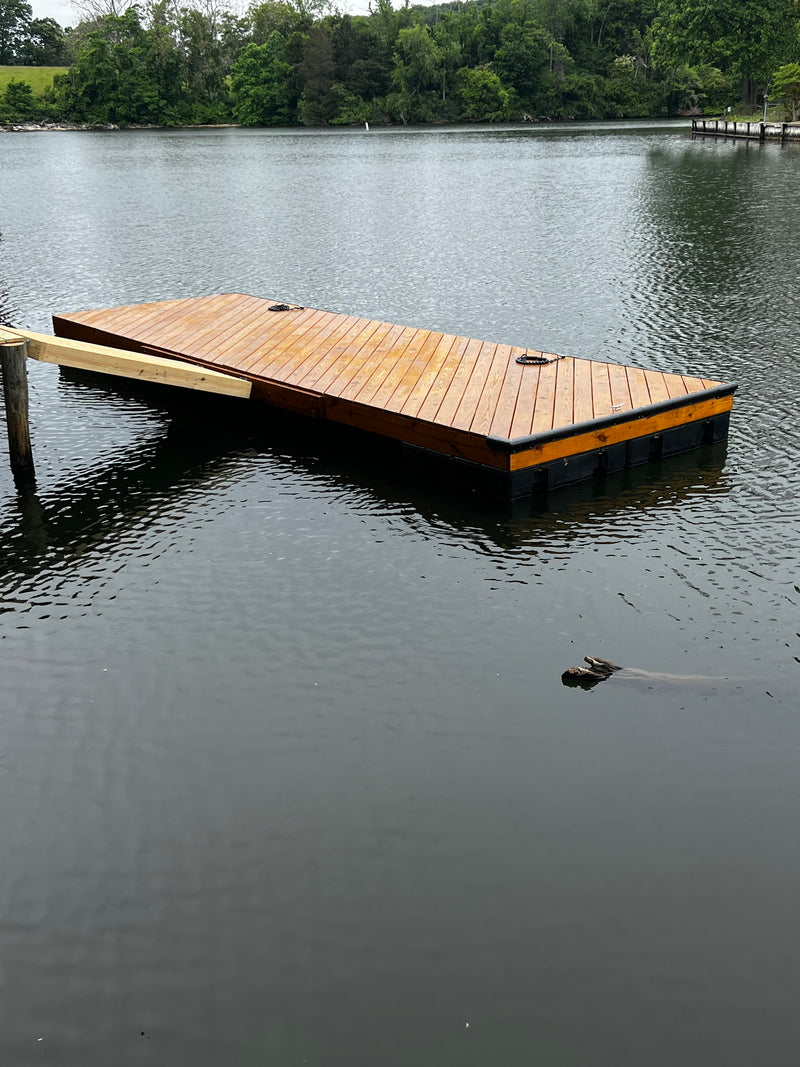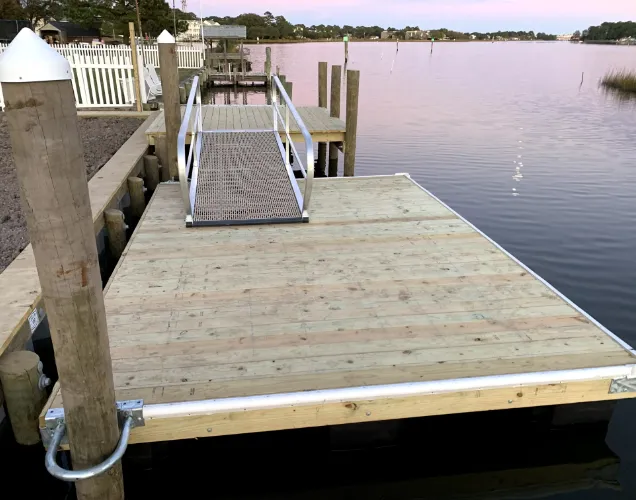Just how to Select the Right Floating Dock Builder for Your Custom Dock Needs
Just how to Select the Right Floating Dock Builder for Your Custom Dock Needs
Blog Article
The Ultimate Guide to Selecting the Finest Floating Docks
Picking the suitable floating dock requires an extensive understanding of numerous elements that affect both efficiency and long life. Factors such as dock types, materials, and necessary attributes significantly impact your decision-making process.
Comprehending Floating Dock Kind
When choosing a drifting dock, it is important to understand the various types available, as each serves unique functions and applications. Floating docks primarily fall under three categories: modular, stationary, and pontoon docks.
Modular docks are made up of specific areas that can be quickly set up or reconfigured, making them suitable for transforming water degrees and diverse uses, such as business procedures or leisure activities. Their flexibility enables customization based on details demands.

Pontoon docks are identified by their buoyant framework, frequently made up of multiple pontoons that supply security and support. They are specifically appropriate for bigger vessels and are commonly utilized in marinas or for waterfront buildings. Understanding these kinds help in selecting the most ideal floating dock to satisfy details needs, making sure optimum functionality and security.
Trick Materials for Longevity
Selecting the ideal products for floating docks dramatically impacts their resilience and durability. One of the most common materials include timber, plastic, steel, and composite materials, each offering distinct advantages and restrictions.
Timber, usually favored for its aesthetic appeal, needs routine upkeep to stand up to dampness and degeneration. Pressure-treated lumber can boost resistance to rot, yet it might still be vulnerable to pests and weathering.

Plastic docks, made from high-density polyethylene (HDPE), are resistant to deterioration, UV radiation, and effect, making them a popular choice for seaside environments. Their light-weight nature likewise helps with very easy setup and moving.
Metal docks, usually constructed from aluminum or galvanized steel, give exceptional strength and toughness. They are resistant to deterioration, especially when treated, but may require additional insulation to stop heat build-up in hot climates.
Composite materials, incorporating wood fibers and plastics, provide the advantages of both timber and plastic, resisting moisture and fading while requiring minimal upkeep. - dock company
Ultimately, the selection of materials should line up with ecological conditions, meant usage, and upkeep choices to guarantee the floating dock continues to be functional and visually pleasing in time.
Important Features to Take Into Consideration
While the choice of materials is important, thinking about vital functions for floating docks is equally vital to make certain optimal efficiency and individual contentment. One vital feature to assess is the dock's buoyancy capacity, which establishes just how much weight it can sustain without submerging. dock company. This is crucial for accommodating watercrafts, individual watercraft, and even leisure tasks
Furthermore, transportability is a substantial consideration. Relying on your demands, you might desire a dock that is very easy to take apart and carry, especially if you plan to relocate it seasonally. Security is one more necessary attribute; a properly designed floating dock needs to lessen activity brought on by wind and water currents, providing a secure platform for individuals.
Safety and security features, such as non-slip surface areas and rounded sides, are also crucial to avoid crashes, particularly in wet conditions. Take into consideration the schedule of accessories, such as bumpers, ladders, and cleats, which can improve the capability of your dock.
Installment and Upkeep Tips
Setting up and preserving a floating dock needs cautious preparation and attention to detail to guarantee its long life and optimum go to website efficiency. Begin by picking an appropriate area that decreases direct exposure to strong currents and waves, which can trigger deterioration. Make certain that the water deepness suffices for the dock's height and that it is secured firmly description to protect against motion.
During setup, follow the maker's guidelines closely, as incorrect assembly can jeopardize stability. Use high-grade products immune to deterioration, such as light weight aluminum or dealt with timber, to improve sturdiness. Frequently inspect all components, consisting of floats, adapters, and anchoring systems, for indicators of damage or wear.
If your dock utilizes flotation protection gadgets, guarantee they continue to be intact and cost-free from punctures. By sticking to these installation and maintenance suggestions, you can delight in a reliable and functional floating dock for years to come.
Budgeting for Your Dock
Budgeting for your dock is a vital step that can substantially affect your total fulfillment and investment in a beachfront residential property. Developing a clear budget plan helps you browse the different options available and guarantees you make notified choices that line up with your financial capacities.
Begin by determining the dimension and layout of the dock you require, as these aspects will greatly influence the price. Floating docks can differ dramatically in cost, relying on materials, buoyancy, and attributes like ramps and accessories. Research different suppliers and vendors to compare view website prices and comprehend the market value.
Along with initial expenses, consider recurring costs such as upkeep, insurance coverage, and prospective fixings. Assign funds for these persisting costs to stay clear of shocks down the line. It's also prudent to allocate any kind of necessary licenses or assessments, which might be needed by neighborhood regulations.
Last but not least, keep in mind the potential roi. A well-planned dock can boost your residential property's worth and allure, providing a favorable monetary impact in the long-term. By budgeting properly, you can ensure that your dock fulfills your demands without compromising your financial stability.
Final Thought
In final thought, selecting the ideal floating dock requires an extensive assessment of numerous aspects, including dock kinds, materials, essential functions, and installation procedures. Cautious factor to consider of monetary restraints will further make sure a sound financial investment.

While the option of products is critical, considering necessary features for floating docks is similarly crucial to make certain optimal performance and user fulfillment.Establishing up and keeping a drifting dock calls for mindful preparation and focus to information to guarantee its long life and optimum efficiency. Floating docks can differ dramatically in rate, depending on products, buoyancy, and attributes like devices and ramps.In conclusion, selecting the perfect floating dock necessitates a comprehensive assessment of different elements, including dock types, materials, vital functions, and setup processes.
Report this page